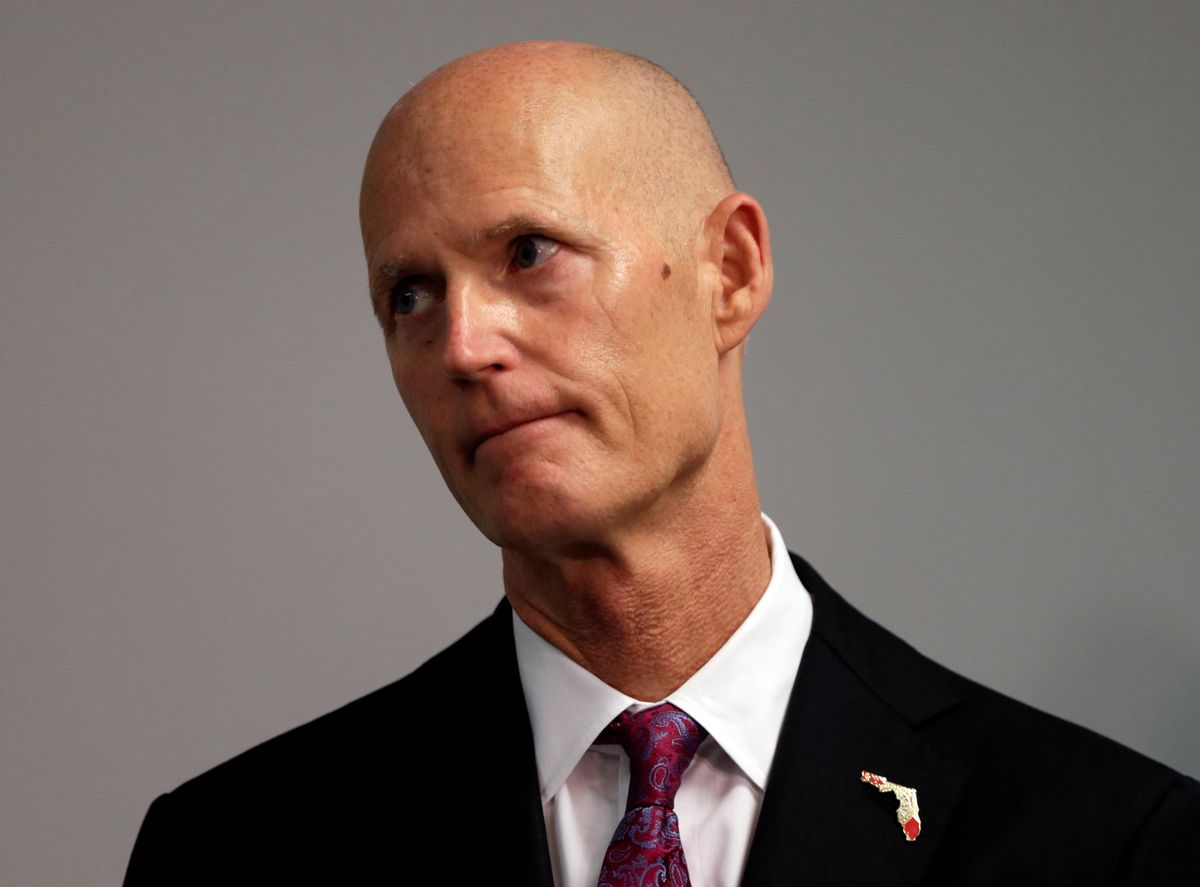This year, Florida has very good odds of electing Andrew Gillum, the charismatic, progressive Tallahassee mayor, as their next governor. But outgoing GOP governor Rick Scott thought he had a perfect plan to ensure that even if Gillum won, the state courts would remain in solid Republican control for years to come.
On Monday, however, the Florida Supreme Court put a stop to his scheme.
Scott's idea was that on his last day in office, he would appoint three Republicans to the Florida Supreme Court. The state consitution says that three existing Democratic-appointed justices on the court would hit mandatory retirement on the same date he would exit the governor's mansion: January 8. Scott twisted the meaning of this to interpret it as, the justices would be out of office at midnight on January 8, but he would still be governor until the moment the next governor is sworn in — meaning he would have a window of a few hours to jam his own cronies onto the court instead of the next governor. Last month, in anticipation of this, Scott ordered the judicial nominating commission — whose members he himself appointed — to give him a list of candidates to pick from on January 8.
Had Scott gone through with this scheme, the Florida Supreme Court would have gone from 4-3 Republican appointees to 7-0, all but ensuring the state courts would become a rubber stamp for the GOP regardless of who won the governor's race.
But following a lawsuit by the League of Women Voters, the Florida Supreme Court itself has now weighed in against this plan, in a ruling that blocks Scott from making the appointments.
"The governor who is elected in the November 2018 general election has the sole authority to fill the vacancies," state the justices, noting that Scott "exceeded his authority by directing the Supreme Court Judicial Nominating Commission ... to submit its nominations to fill these vacancies by November 10, 2018."
The justices will further decide the question of when the nominating commission can certify its nominations after oral arguments on November 8, two days after the election is held.
The effect of this decision will be fairly moot if Republican nominee Ron DeSantis manages to win in November. But whatever happens, Floridians can now be confident they will have a say in the composition of their state courts when they head to the polls to elect their governor.




Shares